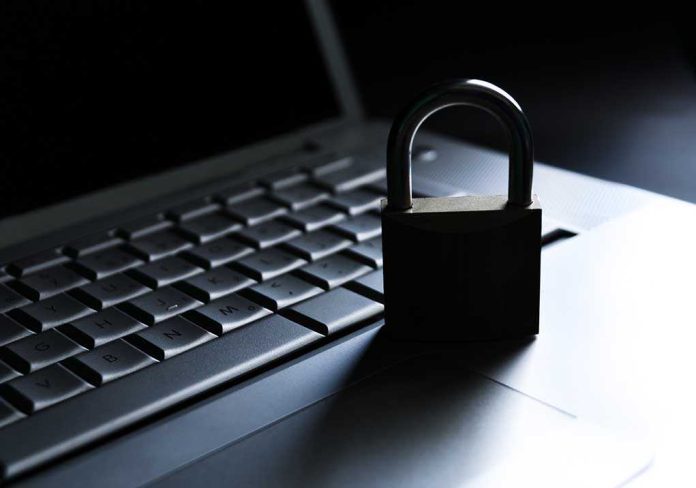
A federal judge’s decision to grant an accused murderer laptop access behind bars has ignited controversy, raising questions about constitutional rights, ideological violence, and the limits of the justice system amid America’s growing distrust of corporate power and government overreach.
Story Snapshot
- Luigi Mangione, accused of murdering UnitedHealthcare’s CEO, received court-approved laptop access in jail to prepare his defense.
- The prosecution alleges the killing was ideologically motivated, targeting corporate leadership as a protest against the healthcare industry.
- The case has polarized public opinion, fueling debate over criminal justice, corporate accountability, and constitutional safeguards for defendants.
- Federal authorities are pursuing terrorism charges, while the defense argues for fair trial rights amid intense media scrutiny.
Court Grants Laptop Access to Mangione Amid High-Profile Charges
On August 4, 2025, Judge Margaret M. Garnett ordered that Luigi Mangione, a highly educated defendant accused of murdering UnitedHealthcare CEO Brian Thompson, be provided with a government-prepared laptop at the Metropolitan Detention Center in Brooklyn. The device, strictly limited to case-related materials, is intended to help Mangione and his defense team review extensive evidence as he faces federal murder and terrorism-related charges. Prosecutors have allowed the request, provided robust security protocols remain in place to prevent any misuse of jail technology.
This decision underscores the tension at the heart of American criminal justice—balancing the right to a robust defense with society’s need for security, especially in a case marked by political motivations and public outrage. Mangione’s legal team, led by Karen Friedman Agnifilo and Marc Agnifilo, argued successfully that the complex, high-stakes nature of the charges required the defendant’s direct access to digital case files. The federal government, intent on securing a conviction and deterring acts of ideological violence, has not opposed the defense’s procedural request, signaling confidence in the strength of their case and the effectiveness of jail safeguards.
Motive, Manifesto, and Ideological Threats to American Institutions
Mangione’s alleged crime—a targeted shooting of a major healthcare executive outside a Manhattan hotel—was, according to prosecutors, meant to “send a message” to the entire healthcare industry. Authorities discovered a manifesto on Mangione at the time of his arrest, outlining grievances against the U.S. healthcare system and framing the killing as a symbolic protest against perceived corruption and corporate power. This rhetoric has amplified concerns about the rise of ideologically inspired violence and its threat to the safety of American business leaders, as well as the stability of critical industries.
The case has also highlighted growing resentment toward large corporations, particularly among those who feel left behind by the healthcare system. Although attacks targeting top executives remain rare, Mangione’s actions have drawn uncomfortable parallels to past incidents where individuals used violence to publicize systemic grievances. The federal indictment’s inclusion of terrorism charges reflects the government’s intent to classify such acts not merely as personal vendettas but as broader assaults on American institutions and values.
Public Backlash, Due Process, and the Role of the Constitution
The Mangione case has triggered intense public debate and significant media attention. Some commentators and segments of the public have gone so far as to cast Mangione as a folk hero, particularly among critics of the healthcare industry. Others view the killing as a dangerous escalation in anti-corporate activism that cannot be justified under any circumstances. This polarization has placed added pressure on the justice system to uphold constitutional principles—especially the right to prepare a defense—while not appearing to coddle or reward individuals accused of symbolic, ideologically motivated violence.
Judge Garnett’s ruling on laptop access echoes a constitutional commitment to due process, even for defendants facing the most severe allegations. Legal experts emphasize that fair trial rights must be protected regardless of public sentiment or the notoriety of the crime. At the same time, the decision has stirred unease among those who fear that high-profile defendants can exploit the system, potentially undermining public trust in both the courts and the broader society’s ability to withstand attacks on its foundational values.
Broader Implications for Security, Justice, and American Society
The short-term impact of this ruling is already being felt, with heightened security protocols at corporate events and renewed scrutiny of how courts handle defendant rights in politically charged cases. For the long-term, legal observers warn that such decisions may set new precedents for technology access behind bars, especially as more cases involve digital evidence and complex defense strategies. UnitedHealthcare and similar corporations are grappling with reputational challenges and the need to reassure employees, shareholders, and the public of their safety and stability in the face of targeted threats.
Amid broader calls for healthcare reform, the Mangione case has become a flashpoint for debates over corporate accountability, government power, and the limits of protest in American society. As the trial progresses, it will serve as a test for the justice system’s ability to balance the constitutional rights of the accused with the imperative to protect against violence that seeks to erode the nation’s core values and institutions.
Sources:
UnitedHealthcare CEO shooting suspect: Ivy League grad Luigi Mangione’s anti-corporate manifesto
Luigi Mangione – Wikipedia (with NBC News citation)
Federal judge grants Mangione access to laptop in jail ahead of murder trial







